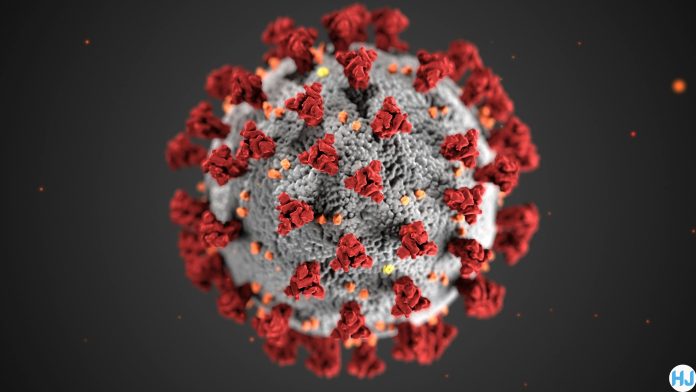Have you ever felt exhausted for weeks on end, alongside a sore throat and swollen glands? You might be wondering, “What’s going on with my body?” The culprit could be the Epstein-Barr Virus (EBV), a common virus that infects most people at some point in their lives. While there’s no cure for EBV, there are ways to manage symptoms and feel better. So, if you’re facing an EBV diagnosis, keep reading to learn about treatment options and what to expect during your recovery.
Understanding EBV
Epstein-Barr Virus, also known as EBV, is a very common human herpesvirus. It spreads through saliva, typically through close contact like kissing or sharing utensils. Most children get infected by EBV at some point, often without even realizing it. However, for teenagers and young adults, primary EBV infection can lead to a condition called infectious mononucleosis, also known as mono.
Symptoms of EBV
The symptoms of EBV can vary depending on the age you’re infected. In young children, EBV infection often causes no symptoms or very mild ones. But for teenagers and young adults, mono can cause a range of unpleasant symptoms, including:
- Extreme fatigue
- Fever
- Sore throat
- Swollen lymph nodes
- Headache
- Muscle aches
Treatment Options for EBV
Unfortunately, there’s no specific medication to kill the Epstein-Barr Virus. Treatment focuses on managing symptoms and helping your body fight off the infection. Here are some ways to feel better while your body tackles EBV:
Plenty of Rest
Your body needs all its energy to fight the virus. Getting enough sleep and taking breaks throughout the day is crucial.
Hydration is Key
Drinking plenty of fluids helps prevent dehydration, especially with a fever and sore throat. Water, clear broths, and electrolyte drinks are all good options.
Soothing Sore Throats
Saltwater gargles, lozenges, and throat sprays can provide relief for a scratchy or painful throat.
Pain Relief
Over-the-counter pain relievers like acetaminophen or ibuprofen can help manage fever, headaches, and muscle aches.
Listen to Your Body
Don’t push yourself too hard. It’s important to listen to your body and rest when you feel tired.
Additional Support
While rest and over-the-counter medications are the mainstay of EBV treatment, there are additional options you can discuss with your doctor to help manage symptoms and improve your overall well-being. These might include
Throat lozenges with numbing agents
These can provide more targeted pain relief for a sore throat.
Warm compresses
Applying a warm compress to your swollen lymph nodes can offer some comfort.
Nutritional Support
Ensuring you get enough vitamins and minerals can help your body fight the infection. Consider a multivitamin or discuss specific nutrient needs with your doctor.
Stress Management Techniques
Stress can worsen fatigue. Relaxation techniques like deep breathing or meditation may be helpful.
What to Expect During Recovery
The good news is that most people recover from EBV infection within a few weeks to a few months. While fatigue can linger for a while, most symptoms will gradually improve with proper rest and self-care. Here’s what to expect during your recovery.
Gradual Improvement
Symptoms will likely improve slowly over time. Don’t get discouraged if you don’t feel better immediately.
Listen to Your Body
Don’t try to return to your normal activities too soon. Pay attention to your body’s signals and take rest days when needed.
Long-Term Effects
In some cases, fatigue can persist for several months after the initial infection. If fatigue is significantly impacting your daily life, talk to your doctor.
Living with EBV
Once you’ve had EBV, the virus stays in your body for life. However, it usually remains inactive and doesn’t cause any problems. In rare cases, the virus can reactivate, but this typically doesn’t cause severe symptoms.
Conclusion
Epstein-Barr Virus is a common infection that can cause unpleasant symptoms, especially for teenagers and young adults. While there’s no cure for EBV, focusing on rest, hydration, self-care, and potentially some additional support options can help you manage symptoms and feel better. With time and proper care, most people recover fully from EBV infection. If you have any concerns about EBV or your symptoms, always consult your doctor.
Similar FAQ
How long does Epstein virus last?
People who get symptoms from EBV infection, usually teenagers or adults, get better in 2 to 4 weeks.
What organs are affected by Epstein-Barr virus?
EBV infection can affect a person’s brain, spinal cord, and nerves.
How to test for Epstein-Barr virus?
Epstein-Barr virus antibody test is a blood test to detect antibodies to the Epstein-Barr virus (EBV), which is a cause of the infection mononucleosis.
How to heal Epstein-Barr virus?
While there is no cure for EBV, there are various treatment options available to manage symptoms and support the immune system. These treatments include staying hydrated, getting plenty of rest, and taking over-the-counter medicine for fever and pain.

